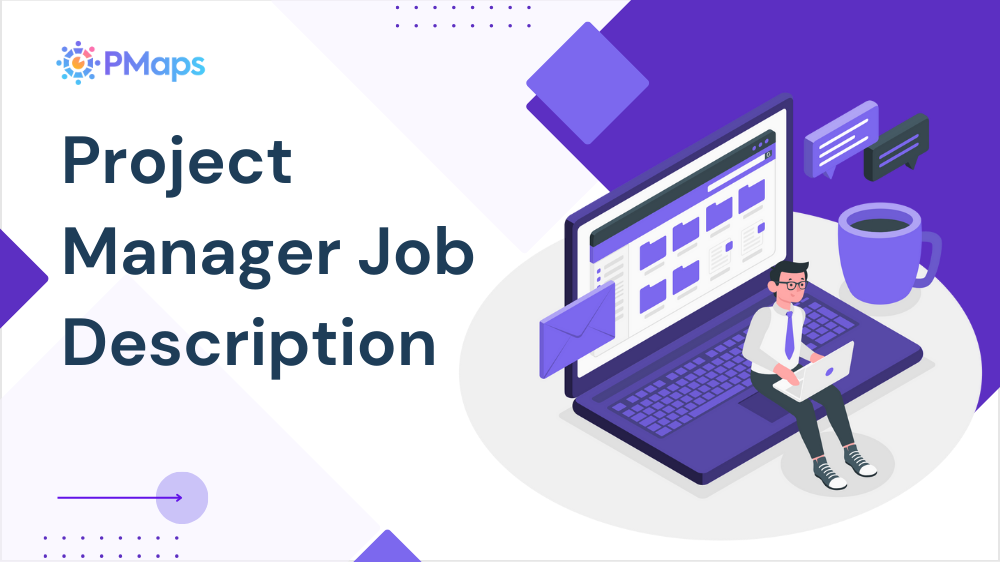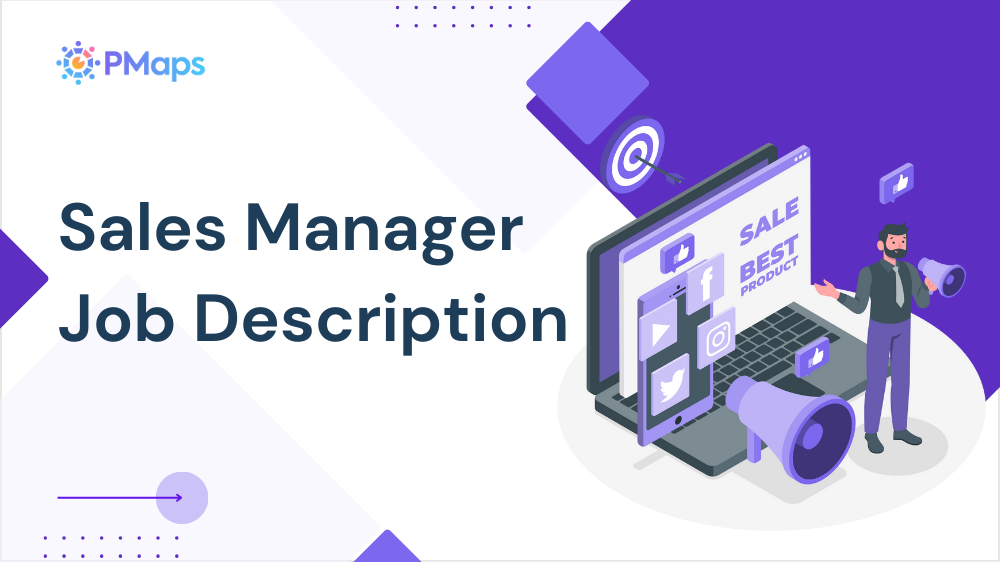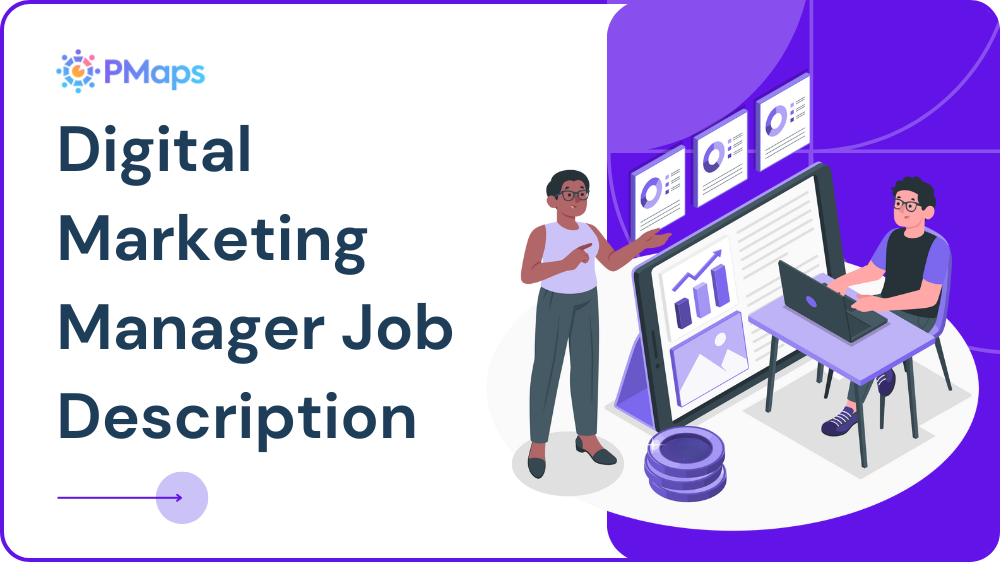
The global demand for project management professionals is projected to grow by 33% through 2030, translating into 25 million new roles worldwide, as per PMI’s Talent Gap Report 2023. This growth reflects the expanding complexity of projects across industries—from SaaS and IT to construction and healthcare. This guide is designed to equip interviewers and hiring managers with essential questions—categorized into general, behavioral, situational, and technical types.
Before you choose—run the Project Manager Assessment now.

Each section includes explanations and sample responses to help evaluate candidates effectively against project manager assessment criteria. Interviewers must check domain knowledge, but also leadership and management skills, emotional intelligence, stakeholder communication, and risk-handling expertise. Whether you're recruiting for IT, hospitality, or operations, this resource ensures your interview process is structured, predictive, and aligned with your organizational goals.
Check if the scope still fits—read the Project Manager Job Description again.
General Interview Questions for Project Manager
These questions evaluate core competencies that are fundamental to managing complex projects. They help interviewers assess role familiarity, decision-making frameworks, communication clarity, and tool proficiency. Responses to these questions form the foundation for deeper assessment in behavioral and technical areas.
Sample Candidate Answer: Sure. In one project, I led a cross-functional team where dev and QA had a clash over priorities. I brought them together for sprint planning, which helped realign expectations. When a sprint fell behind, I owned the miss, adjusted our estimation model, and we saw a 15% improvement. I’ve also helped a disengaged team member get back on track with regular check-ins and task alignment.
1. Can you walk us through your project management experience?
Purpose:
This question determines the candidate’s exposure to managing projects across different scopes, industries, and team structures. It also shows how well they understand the responsibilities of a project manager beyond administrative tasks.
What to Look For:
A focused answer should include specific project types, industry domains, team sizes, budgets, and tools used. Candidates should describe the life cycle stages they handled—initiation, planning, execution, monitoring, and closure. Mention of delivery impact, risk ownership, or stakeholder engagement signals strong capability.
2. How do you prioritize tasks when managing multiple projects?
Purpose:
This question assesses the candidate’s ability to make structured decisions when managing overlapping deadlines or limited resources. It reveals their prioritization framework and how they balance urgency with long-term objectives.
What to Look For:
Candidates should reference methods like MoSCoW, RICE, or Kanban boards to prioritize based on impact and effort. Responses should reflect consideration for stakeholder needs, task dependencies, and available resources. Effective prioritization will also involve regular communication with teams to re-align during scope shifts or bottlenecks.
3. How do you handle scope creep?
Purpose:
Scope creep is a common threat to project success. This question tests the candidate’s understanding of change control processes and their ability to enforce scope boundaries without damaging stakeholder relationships.
What to Look For:
Strong responses include structured change request protocols—defining proposed changes, conducting impact assessments, and seeking formal approvals. Candidates should also mention how they document scope changes, update project plans, and reallocate resources accordingly. An example showing how they managed scope creep without delay or cost overrun adds credibility.
4. How do you communicate project status to different stakeholders?
Purpose:
This question measures the candidate’s communication strategy and their ability to tailor updates based on stakeholder roles. It also reflects on their frequency of communication and use of data-driven reporting.
What to Look For:
Candidates should differentiate how they communicate with executives, clients, and internal teams. Look for use of concise dashboards for leadership, detailed sprint reports for teams, and status summaries for clients. Proficiency with tools like Jira, Confluence, or MS Teams indicates structured communication. Mention of communication frequency (e.g., weekly stand-ups, monthly reviews) shows planning discipline.
5. What project management tools are you proficient in?
Purpose:
Project managers rely heavily on digital platforms to coordinate activities, track progress, and report outcomes. This question helps gauge technical readiness and the candidate’s ability to leverage tools effectively.
What to Look For:
Candidates should name specific tools (e.g., Trello, Asana, MS Project, Smartsheet, Jira) and describe how they used them. Useful details include setting up workflows, tracking KPIs, generating automated reports, or integrating with other platforms (e.g., CRMs, time trackers). Tool selection rationale based on project type or team structure adds weight to their answer.
Situational Interview Questions
Situational interview questions ask how you’d handle specific, often challenging, project scenarios. They test your judgment, adaptability, and leadership in hypothetical situations. In project management, this helps interviewers assess how you’d respond to real issues like budget overruns, scope changes, or team conflicts—before they actually happen.
Sample Candidate Answer: If a stakeholder asks for big changes late in the project, I walk them through the impact before using a formal change process. For budget issues, I dig into cost drivers early and re-scope if needed. I handle team conflicts by bringing people together to align. If goals are unclear, I clarify them first before moving forward.
1. What would you do if a key stakeholder requested a major scope change two weeks before launch?
Why it’s asked:
To assess change management, stakeholder handling, and ability to maintain delivery standards under pressure.
What HR should look for:
Clear mention of impact analysis (time, cost, risk), stakeholder negotiation, and adherence to a formal change control process. Candidates should balance flexibility with project integrity.
2. A project is clearly going to exceed its budget. How do you handle it?
Why it’s asked:
To evaluate financial discipline and problem-solving before escalation.
What HR should look for:
Proactive cost tracking, early risk identification, and willingness to re-scope or reallocate resources. Look for communication with finance and clients before it becomes a crisis.
3. Two senior team members strongly disagree on a task execution approach. What’s your next step?
Why it’s asked:
To test leadership in conflict resolution and team alignment.
What HR should look for:
Ability to stay neutral, mediate effectively, and guide the team toward a decision based on project goals, not personal preferences. Collaborative problem-solving is key.
4. You’re handed a project with unclear goals and vague timelines. What do you do first?
Why it’s asked:
To evaluate initiative, stakeholder engagement, and project scoping skills.
What HR should look for:
Strong candidates will initiate stakeholder meetings to clarify objectives, define success metrics, and structure a workable timeline before jumping into execution.
5. Midway through a project, your lead developer quits. How do you handle the disruption?
Why it’s asked:
To assess crisis management, resource reallocation, and timeline recovery strategies.
What HR should look for:
Look for candidates who stay composed, revisit resourcing plans, and reassign responsibilities quickly while keeping communication transparent. Bonus if they mention engaging HR or talent acquisition early.
Technical or Role-Specific Interview Questions
These questions reveal a candidate’s ability to apply project management tools, frameworks, and domain-specific techniques in real project environments. In the context of a project manager role, technical fluency must go beyond theory—it should demonstrate planning depth, risk foresight, and performance monitoring accuracy.
Sample Candidate Answer: I usually start by building a WBS with input from team leads to break the work into clear, trackable parts. I track progress using KPIs like burn rate and schedule variance, and I maintain a live risk register. I’ve worked in Agile and Hybrid setups, adapting based on team and client needs. For deliverables, I set clear acceptance criteria early and use regular reviews to stay aligned with stakeholders.
1. How do you build a Work Breakdown Structure (WBS)?
Purpose:
To evaluate a candidate’s planning skills and ability to break down a project into manageable components aligned with goals and deliverables.
What to Look For:
Look for logical task decomposition based on project phases, clarity in hierarchy, and how they tie the WBS to timelines and resource assignments. A strong answer includes stakeholder input and clear mapping to milestones or cost centers.
2. What KPIs do you use to track project performance?
Purpose:
To test the candidate’s ability to monitor progress, detect issues early, and drive accountability through data.
What to Look For:
Candidates should mention standard KPIs like Earned Value, Burn Rate, Cycle Time, and Schedule Variance. Effective responses explain how they use these metrics to identify risks, adjust resource plans, or optimize delivery cadence.
3. How do you approach risk management in projects?
Purpose:
To assess the candidate’s ability to proactively identify, assess, and mitigate risks before they escalate.
What to Look For:
Look for structured responses involving risk registers, probability-impact matrices, and early stakeholder alerts. Good answers show integration of risk planning into kickoff phases and regular status reporting—not just reaction to issues after they arise.
4. Describe your experience working in Agile or Hybrid environments.
Purpose:
To test the candidate’s comfort with adaptive methodologies and their ability to balance structure with flexibility.
What to Look For:
Candidates should discuss Agile roles, sprint rituals, and backlog management. Bonus if they describe tailoring agile principles for hybrid teams or regulated industries, showing method fluency over rigid textbook knowledge.
5. How do you ensure deliverables meet client or stakeholder expectations?
Purpose:
To evaluate quality control, feedback integration, and delivery precision.
What to Look For:
Strong responses include setting acceptance criteria early, conducting regular demo or review sessions, and refining based on stakeholder input. Look for mention of traceability, user feedback loops, or QA sign-offs as part of closure protocols.
Pro Tips for Interviewing a Project Manager
Hiring a Project Manager goes far beyond verifying certifications or software proficiency. It’s about selecting a strategic operator who can lead teams through complexity, align stakeholders under pressure, and consistently deliver outcomes tied to business value. These tips will help you move past rehearsed responses and uncover true execution leadership.
Missing deadlines and shifting scopes? Understand how to hire a Project Manager who maintains clarity across tasks and priorities.
1. Prioritize Delivery Ownership Over Process Familiarity
Methodologies don’t deliver projects—people do. Ask, “Can you walk me through a project you owned end-to-end, including the challenges and outcomes?”
What to Look For: End-to-end accountability, problem anticipation, and decisions made under constraint—not just following a process.
Watch Out For: Candidates who name-drop Agile or PMP without demonstrating how those frameworks translated to results.
2. Use Behavioral Questions to Uncover Decision-Making Under Pressure
Delivery rarely goes to plan. Ask, “Tell me about a time your project derailed—what did you do next?”
What to Look For: Structured response showing clarity of thought, real-time triage, stakeholder communication, and a clear corrective path.
Watch Out For: Blame-shifting or vague responses without tangible next steps or learning outcomes.
3. Evaluate Stakeholder Alignment and Conflict Resolution Skills
Cross-functional projects often involve competing agendas. Ask, “How do you handle conflicting priorities across departments?”
What to Look For: Evidence of proactive alignment—setting shared goals, resolving roadblocks early, and using influence without authority.
Watch Out For: Passive responses or over-reliance on escalation without personal intervention.
4. Test Communication for Clarity, Not Just Frequency
Reporting is a core PM function—but it must resonate with the audience. Ask, “How do you communicate project status to executives vs. your team?”
What to Look For: Adaptive messaging—data and dashboards for leadership, day-to-day coordination for teams, and timely risk updates for all.
Watch Out For: One-size-fits-all updates or overuse of technical detail when business impact is what matters.
5. Look for Real Business Impact, Not Just On-Time Delivery
Projects should move the business forward. Ask, “What measurable business result came from your last project?”
What to Look For: Cost reduction, time-to-market acceleration, process improvement, or client satisfaction increases—quantified and clearly linked to PM actions.
Watch Out For: Answers that celebrate completion without any visibility into business or customer impact.
6. Assess Flexibility in Unstructured or Ambiguous Environments
Not all projects come with clean charters. Ask, “What’s your approach when you're given a project with no clear scope or requirements?”
What to Look For: Comfort in ambiguity—engaging stakeholders early, creating a project structure from scratch, and clarifying goals before executing.
Watch Out For: Over-reliance on predefined templates or hesitation to take initiative in undefined environments.
Conclusion
Interviewing Project Managers requires a balance of assessing planning skills, leadership qualities, and practical execution. The right questions—across general, behavioral, situational, and technical categories—can reveal how a candidate thinks, adapts, and delivers under pressure.
Use this guide to structure interviews that go beyond surface-level qualifications and focus on real-world capability. Bookmark this page and refer back to it as you build your next project manager hiring pipeline. And if you're looking to streamline evaluations with role-specific tools, explore how PMaps' project manager assessment can support better, data-driven decisions. Call us at 8591320212 or email assessment@pmaps.in for a demo tailored to your hiring goals.









